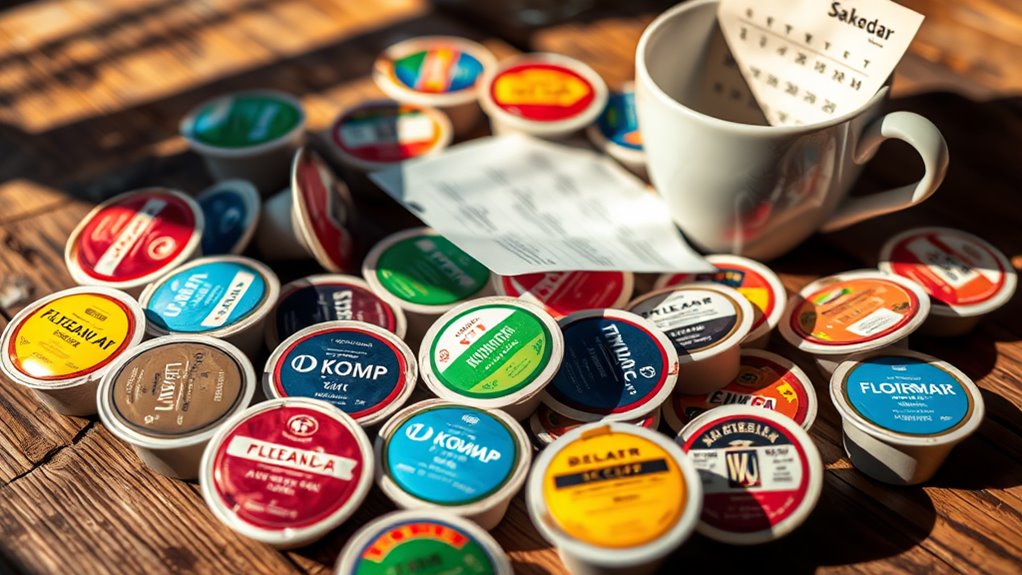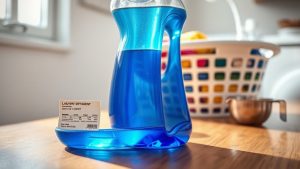
K-Cups don't expire in the traditional sense. They're safe for consumption long after the printed best-by dates. However, flavor may decline after a year. The key is that the seal must remain intact to guarantee their safety. Storing K-Cups in a cool, dry place prevents moisture and light from degrading them. While they may still be safe, you might find the taste isn't as fresh. There's more to take into account about shelf life and storage options.
Have you ever wondered if K-Cups really expire? The good news is that K-Cups don't technically expire. They can remain safe for consumption long after their printed best-by dates. However, it's important to understand what that date actually means. The best-by date indicates when the product is expected to be at its peak quality and flavor, not when it becomes unsafe to drink. Typically, the flavor and quality of K-Cups may start to decline after about a year past this date, but they're still safe to use as long as the seal is intact.
The shelf life of K-Cups is influenced by several factors. They're sealed with nitrogen, which helps preserve their freshness by keeping oxygen out. This nitrogen sealing also protects against moisture and light, both of which can degrade flavor. As long as the seal remains unbroken, you can trust that the K-Cups inside are safe to use. K Cups Coffee lasts for 3-8 months after their best-by date, while other types of K-Cups may have different durations.
K-Cups' shelf life is preserved by nitrogen sealing, protecting against oxygen, moisture, and light, ensuring safety as long as the seal is intact.
A broken seal, however, introduces potential issues like mold growth, as moisture can enter and create an environment for fungi to thrive. Therefore, if you notice any damage or breakage in the seal, it's best to err on the side of caution and discard that K-Cup.
When it comes to storage, keeping K-Cups in a cool, dry place is essential. High humidity or heat can compromise the integrity of the packaging and, consequently, the product inside. A pantry or cupboard away from heat sources and direct sunlight is ideal.
Avoid storing K-Cups near cleaning supplies or chemicals, as exposure to these substances can be harmful. While some people might consider freezing K-Cups to extend their lifespan, it's generally not recommended due to potential moisture risks.
Different types of K-Cups have varying shelf lives. For instance, coffee K-Cups can remain flavorful for 3-8 months beyond the best-by date, while tea and hot chocolate K-Cups can last 6-12 months. Apple cider K-Cups tend to retain their quality for 8-12 months past their best-by date. This variation indicates that the type of beverage also plays a role in freshness.
It's a common misconception that K-Cups expire after their best-by date. The reality is that while they may still be safe to use, the flavor may deteriorate over time, becoming stale or even acidic. Your decision to use K-Cups past their best-by date ultimately comes down to personal taste. If you find that the flavor has diminished, it may be time to buy a fresh box.
Conclusion
To sum up, while K-Cups don't technically expire, their quality does diminish over time. Think of them like a fine wine; they're best enjoyed fresh, but a bottle left too long can lose its charm. As long as you store them properly and check for any signs of damage, you can still enjoy a decent cup well past the printed date. Keep this in mind, and you'll guarantee your coffee experience remains delightful and satisfying.



